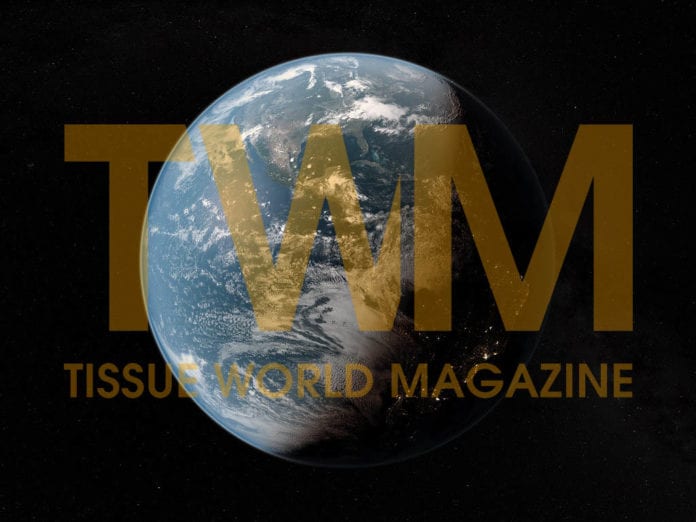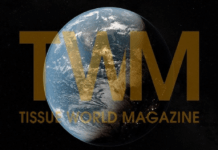GERMANY
Man killed in accident at Metsä Tissue’s Stotzheim facility in Germany
A 41-year-old truck driver was killed in an accident at Metsä Tissue’s Stotzheim facility in Euskirchen in Germany on 29 April.
According to the local police department, the accident occurred around 10am. when paper rolls were being unloaded from a truck with a forklift.
A 1.2 tonne paper roll fell from the forklift onto the truck driver.
Metsä Tissue declined to comment on the matter as the police investigation is still ongoing.
News from RISI (www.risiinfo.com)
SWEDEN
SCA audit finds representatives acted in compliance with Swedish law
SCA has said an independent audit investigating claims its staff were involved in extravagant corporate perks found its representatives “acted in compliance with Swedish law and company policies”.
The company had been in the spotlight during 2014-15 over media allegations about its senior executives’ use of business aviation and hunting for hospitality purposes.
SCA said it appointed two independent audits: accounting firm PwC and Forsberg, authorised public accountant, Deloitte, and Johan Munck, former Justice of the Supreme Court.
In a statement SCA said: “The investigators have determined that the company and its representatives have acted in compliance with Swedish law and the company’s policies.
“The company’s auditors have also submitted an unmodified auditor’s report for 2014.
“Furthermore, the investigators concluded that there are no grounds for SCA to make financial claims against individuals and that the board of directors and the former president should be discharged from liability.”
It added that PwC’s investigation focused on the use of business aviation, while the second audit also included aspects such as the hunts arranged for business hospitality purposes.
The statement said the investigations criticised SCA’s invoicing procedures and the high cost of business aviation, which was due to a number of reasons.
“The investigations’ findings that confirmed that all of the journeys taken by the former president and chief executive in the business aircraft were designated as business trips, that the journeys taken by the chairman of the board and the other board members complied with the company’s policy for business aviation and that all issues investigated were determined to be in compliance with Swedish law.”
In December 2014, SCA revised its policy on the use of business aviation, entailing that the family of employees and other external individuals are not permitted to travel on the business aircraft and that it may not be used in conjunction with business hospitality.
In February, it was announced that Jan Johansson was to step down as president and chief executive.
The company had been in the spotlight over media allegations that include extravagant corporate perks including the use of private jets.
At the time the on-going audits were understood to have cost the jobs of three of its senior executives.
SCA reported record profits in January 2015, with the group delivering its highest pre-tax profit ever, up 17% to SEK 10,888m year on year. Net sales rose 12% to SEK 104,054m.
“The investigators have determined that the company and its representatives have acted in compliance with Swedish law and the company’s policies.” SCA
FRANCE
SCA to permanently suspend operations at French tissue mill by October
SCA plans to stop all operations at its Saint-Cyr-en-Val facility in France by October this year, affecting 119 workers.
According to a spokesperson from the company, a combination of factors has led the firm to take this decision.
“First, the mill is producing high quality tissue using through TAD technology for private labels,” he said, adding that this mature, stagnant and competitive market has to compete with brand owners.
“Second, the mill’s production unit does not fit with the European industrial production standards.”
He added: “The mill’s PM has a width of 3.48m compared to a European standard width of 2.65 – 2.70m, creating 30% waste and additional production and transport costs.”
Statutory negotiations took place with employee representatives. On 8 April, workers observed a 24h-hour strike at the plant to protest against the closure.
The Orléans mill used to produce 35,000tpy of tissue for toilet paper and kitchen rolls.
According to the spokesperson, the facility does not produce tissue for toilet paper anymore.
Production on the mill’s PM was stopped three weeks per month, while the firm’s converting activities are suspended 10 days per month.
The mill’s production activities should be transferred to the firm’s Gien mill while the converting operations should be transferred to the Theil facility.
News from RISI (www.risiinfo.com)
ITALY
Italy’s Roto-cart shelves plan to build tissue converting facility in Austria
St. Veit an der Glan in Carinthia, southern Austria, will not be the home of a new tissue converting facility. Italy’s Roto-cart, which was planning to spend up to Euro 70 million ($79.7 million) on the project, cancelled its plan, due to, amongst other reasons, the “tight financial situation of the state of Carinthia.”
Roto-cart announced one and a half years ago that it was planning to build a tissue converting facility in the St. Veit industrial area. The project provided for the creation of around 120 jobs.
However, now Roto-cart said that the Hypo crisis – Carinthia faces probable bankruptcy after Austria’s central government refused to vouch for debts left by the Hypo Alpe Adria scandal – had dampened the spirits of the banks that were to finance the project. Moreover, the Italian company cited changes in the allocation of EU subsidies and difficulties in the time management of the project’s financing as reasons for its decision to cancel its investment plans.
Roto-cart, based in Treviso, northern Italy, employs more than 100 people at two converting sites in Italy.
News from RISI (www.risiinfo.com)
PORTUGAL
Fortissue starts up new tissue machine in Viana do Castelo
Production is up and running on a new tissue machine in Portugal.
Fortissue Produção de Papel, which is part of the Suavecel group, started production at its mill in Viana do Castelo in late March.
The new machine can produce 120tpd of tissue for household and sanitary use. Its startup created 35 jobs.
Fortissue brought the new machine online later than originally planned due to energy supply issues.
The firm confirmed articles in the local press according to which the high-voltage line that was to supply the mill was not installed on time.
“The startup needed to be postponed by two months compared to the initial program because of the delay in the supply of energy. We had to interrupt the installation process,” mill director André Silva was quoted in the local press as saying.
Fortissue’s Euro 30m investment project originally provided for the installation of two paper machines and the creation of 180 jobs.
However, the realisation of the second phase reportedly depends on market conditions and the economic development.
News from RISI (www.risiinfo.com)
EUROPE
Södra hikes up softwood prices
Södra has increased the price of its softwood pulp in Europe to USD 870 per tonne.
The pulp producer said the move was “due to low global softwood pulp stocks and solid demand”.
It made the increase for the market price of NBSK in Europe from 1 June 2015.
The company also reported an operating profit for the first four months of 2015 of SEK 941m.
Sales increased 7% to SEK 6,243m and the operating margin improved to 15%.
Chief executive Lars Idermark said: “The year started well for Södra, with healthy sales and strong results.
“The market has been stable, prices relatively good and the currency situation favourable.
“Production has also been efficient and we are seeing the results of continued rationalisation.”
Demand for pulp remained stable, but the company said the currency trend with a strengthened USD against the EUR led to a slightly lower world market price for NBSK.
Södra added that earnings improvement for the first four-month period is the result of “healthy demand for Södra’s products and services and a favourable currency situation”.





























